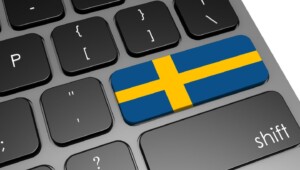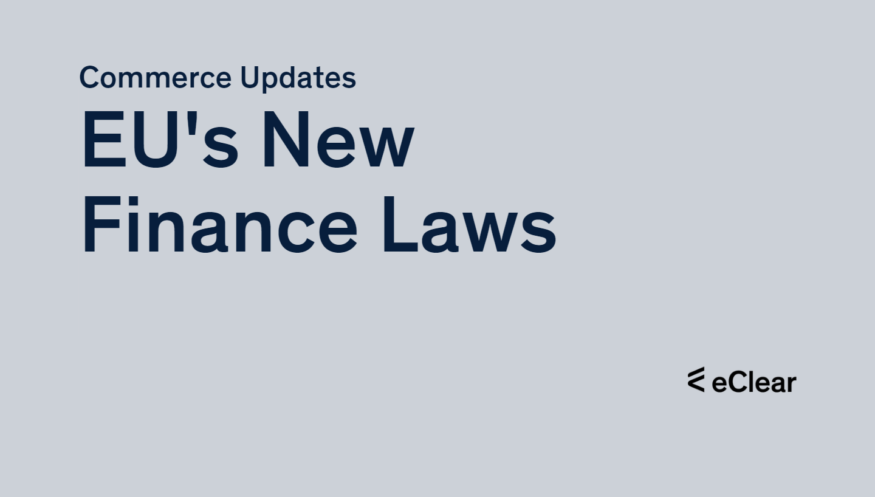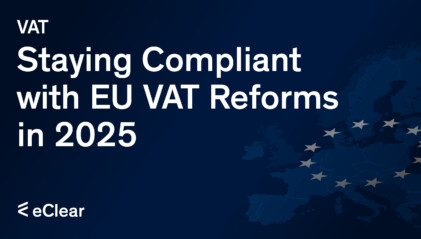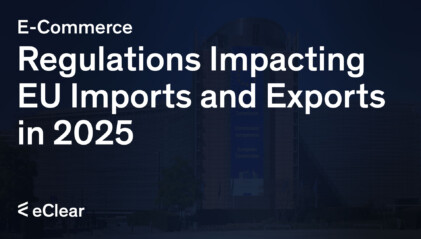The European Commission introduced new rules on 13 April to ensure that financial information shared between EU and non-EU countries is consistent and transparent. These rules are designed to create a level playing field and make financial dealings more transparent and understandable.
Defining the Role of Digital Platforms
Many of these new rules focus on digital platforms that facilitate financial transactions. The Commission will compare the definitions used in non-EU countries with those used in the EU to ensure they are similar. However, suppose a platform in a non-EU country manages less than EUR 1 million in transactions. In that case, it may be defined differently according to that country’s laws.
Clarifying Sellers and Activities
The Commission will also look at how ‘sellers’ and ‘relevant activities’ are defined in non-EU countries. Suppose a non-EU country does not include certain activities in its definition that the EU does. In that case, the Commission will only consider information related to activities defined by that country’s laws.
Improving Transparency and Combating Tax Evasion
The new rules aim to improve transparency and fight tax evasion by examining the procedures and requirements for reporting financial information in non-EU countries. The goal is to ensure these procedures and requirements are as rigorous as those in the EU.
Ensuring Compliance
The Commission will also check that non-EU countries have rules and procedures to ensure these reporting requirements are followed. This ensures that the new regulations are effectively implemented and complied with.
Determining Equivalence
If a non-EU country meets all the criteria set out in the new rules, the financial information it shares will be considered equivalent to that of EU countries. This determination will also apply to other EU and non-EU agreements.
New Rules are in Effect
These new rules were enacted twenty days after they were published in the Official Journal of the European Union – 3 May 2023. They apply to all EU countries.
Belgium’s €10bn VAT Gap: A Hit to the Economy

Belgium’s tax authorities are failing to claim approximately €10 billion in annual Value Added Tax, equating to 2% of the country’s GDP, according to an International Monetary Fund (IMF) analysis, reports Brussels Times. This 22.28% VAT gap represents uncollected revenue that, if received, could significantly reduce the nation’s budget deficit, currently one of the highest in the eurozone at 4% of GDP.
Comparatively, Belgium’s VAT collection efficiency trails behind its neighbours, such as France, the Netherlands, and Germany. Over the past decade, Belgium’s average’ c-efficiency ratio’, a measure of tax collection efficiency, was reported at 0.48, lower than France’s 0.49, the Netherlands’ 0.51, and Germany’s 0.56.
This VAT collection issue has been persistent, with the compliance gap and the disparity between potential and actual VAT revenues remaining around 20% since 2011. The IMF cites exceptions in 2015 and 2020 due to changes in statistical methodology and increased cash-based payments during the Covid-19 pandemic, respectively. Despite this, the IMF’s findings are deemed suggestive and not definitive, as the analysis cannot pinpoint the exact causes of non-compliance.
Deutsche Telekom: Europe’s Most Valuable Brand

Amazon has regained its crown as the world’s most valuable brand, despite a 15% slump to $299.3bn, Brand Finance’s Global 500 2023 report reveals. The contraction, primarily attributed to eroding brand strength amid the pandemic fallout, reflects the struggles faced by many technology companies dealing with shifting consumer habits and logistical constraints.
Second in line, Apple suffered a 16% tumble in brand value, primarily driven by disruptions in supply chains and labour shortages expected to affect the delivery of its iconic hardware products. Notably, LinkedIn and Instagram defied the trend, registering impressive growth attributed to the successful commercialisation of their services.
Deutsche Telekom emerges as the German national champion, contributing $62.9bn, therefore securing its standing as Europe’s most valuable brand. The German telecommunications giant prides itself on its ongoing commitment to social responsibility in an ever-digital world.
Global titans Amazon and Apple share the limelight with Google, Microsoft, and Walmart, each commanding great brand values. Meanwhile, the rising demand for electric vehicles has driven substantial value growth for Tesla and BYD, signalling an unmistakable shift towards a low-carbon economy.
German online shoppers switch to PayPal

A current study, “Online Payment 2023”, by EHI, shows a turnaround in the payment preferences of German online customers. According to the report, PayPal overtook purchases on account for the first time in 2022 and has become the leading payment method in e-commerce.
Overall, estimated net e-commerce sales in 2022 amounted to 85 billion euros, a slight decrease compared to the previous year due to the re-opening of physical shops.
PayPal’s popularity is based on its speed and convenience, according to the study’s author, Radoslav Raychev. In 2022, 29.6% of online purchases were made with PayPal, while purchases on account registered only a 23.8% share.
Other preferred payment methods were direct debit/bank collection with 20.9% and credit card with 12.1%. Giropay, German Sparkassens’ joint digital payment procedure, experienced an increase from 0.4% to 1.6%.
77% of the surveyed merchants offer the “buy now, pay later” (BNPL) concept, which saves customers from having their account debited immediately when shopping online. Invoice purchase was the most frequently used BNPL payment method in 2022 (67%), followed by PayPal (43%) and instalment purchase/financing (24%).
EU law against wastage: Textile dumping banned

According to Der Spiegel, the European Union is setting the course for more sustainability in the fashion industry with a new law. The ban on destroying unsold, new textiles is intended to counteract the fast-fashion industry, which often destroys surplus garments.
“We are making sustainability the standard for everyday consumer goods,” comments German Secretary of State for Economic Affairs Sven Giegold (Greens). However, exceptions are provided for small and medium-sized enterprises.
The law allows only durable, repairable, reusable and recyclable products in the EU. A digital product passport will inform consumers about the sustainability of products.
These innovations will come into force as soon as the European Parliament and the member states have agreed on a common version of the legislative text. They complement the eco-design rules already adopted in November, which apply to various electronics and household appliances.
eBay.de records 30% growth in private sellers

Since eBay.de made private selling free, the number of private sellers on the platform has increased by almost 30 per cent. The change, which took effect on 1 March 2023, has also led to a 26 per cent increase in items posted.
The positive development spans almost all product categories, with electronics and collectables showing particularly robust growth. The number of users using eBay.de to buy and sell has increased by 14% since March.
A YouGov study shows that security is a critical issue for consumers buying and selling used goods, and eBay.de has already taken steps to address these concerns, including secure payment processing and seller protection.
In addition to free private sales, eBay.de continues to invest in the marketplace and is introducing new features to make listing, selling, and shipping items easier.
Platform Operators’ Tax Reporting Simplified in Sweden

From 2023, new rules will apply in Sweden that require digital platform operators to collect data about their sellers and the compensation they earn on the platform. This information must then be reported annually to the Swedish Tax Agency (Skatteverket), with the first report due by 31 January 2024, for the income year 2023.
New E-service for Platform Operators
To facilitate this, a new e-service for the registration of platform operators, “Submit information about reporting obligation for platform operators,” has been launched. Platform operators are required to register with the Swedish Tax Agency by 30 June 2023.
Determining Applicability of New Rules
Platform operators need to determine for themselves whether they fall under the new rules:
- Platform operators subject to the regulations must register by 30 June 2023.
- Platform operators without sellers must report and can apply for an exemption from submitting control information, which must be done by 2 May 2023.
- An e-service for registration and application for exemption is available on the Swedish Tax Agency’s website.
- Platform operators requiring sellers to report should review their sellers’ information (so-called customer knowledge process). Some reviews should be completed by 31 December 2023.
Future of Tax Tech: Insights from Vatupdate’s Report

chaofann getty
The 2022 Global Tax Technology report by Vatupdate.com has been released, presenting an exhaustive analysis of the tax systems in over 160 nations worldwide. This document delves into the regulatory constraints instituted by various tax authorities, current tax technology conditions, and projected future regulations.
Encompassing global developments, international tax management on SAP, worldwide tax summaries and a regional breakdown encompassing Europe, Africa, Asia Pacific, the Middle East, and North and South America, the report provides a detailed roadmap for understanding the global tax landscape.
In particular, the report scrutinises tax obligations by countries, including SAF-T Reporting, e-Invoice, and Invoice Reporting, among other tax systems.
Evaluating E-Invoicing: EU Commission Seeks Stakeholder Views

In a significant move to assess Directive 2014/55/EU’s impact on the single market and public procurement’s E-Invoicing, the European Commission has initiated an insightful survey. Led by the E-Invoicing Building Block team, the survey aims to explore the current and prospective requirements of E-Invoicing, focusing on Small and Medium-sized Enterprises (SMEs).
This concise, 10-minute survey invites various stakeholders, from SMEs to multinational corporations and public authorities. The collective feedback will shape an evaluation report due for release in November 2023, potentially directing the future of E-Invoicing in the EU.
EPPO Investigates €30 Million Fraud Scheme in Romania and France

The European Public Prosecutor’s Office (EPPO) has launched a major investigation into a suspected fraud scheme involving over €30 million of EU and national funds. The 16 May 2023 operation involved forty house searches across Romania and France.
The fraud scheme allegedly involved issuing false letters of guarantee for projects financed by EU funds. These letters, issued by fictitious banks or dubious financial entities, promised to insure the projects against potential damages.
The ongoing investigation, supported by several law enforcement agencies in Romania and France, underscores the importance of vigilance and robust controls in managing EU and national funds.







